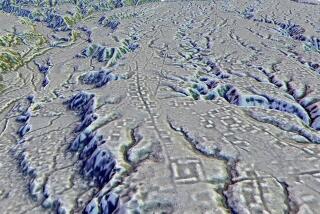Botswana’s Okavango Delta becomes 1,000th UNESCO World Heritage Site
UNESCO’s World Heritage list hit a milestone of sorts last week when it proclaimed the Okavango Delta in northwest Botswana as its 1,000th site. The African delta was among 26 new places on the globe singled out for recognition, including a first one in Myanmar and a new one in the U.S.
The World Heritage Committee met for 10 days in Doha, Qatar, and approved the new natural and cultural treasures, according to an agency announcement. The meeting ended June 25 with a beefed up list of 1,007 sites in 161 countries.
The inland Okavango Delta, one of the natural sites selected, doesn’t empty into a sea or ocean. The Okavango River floods during bone-dry winter months and is home to the largest elephant population in the world. Flood waters draw buffalo, giraffes, zebras, elephants, lions, cheetahs, rhinoceros, both black and white species, and other animals.
The African delta is vital to hundreds of bird species, fish and plants too that rely on the marshlands and seasonal floods for survival.
“One of the unique characteristics of the site is that the annual flooding from the river Okavango occurs during the dry season, with the result that the native plants and animals have synchronised their biological cycles with these seasonal rains and floods,” the U.N. World Heritage statement says.
The African Wildlife Foundation worked hard for the designation to help protect the delta in Botswana and the river waters that flow into it from Angola and Namibia. National Geographic researchers in August will begin the 2014 Okavango Expedition to document the valuable wilderness and its ecosystem.
But back to the world heritage list. The Pyu Ancient Cities in Myanmar was added for its excavated buildings and burial sites that date to a kingdom that flourished between 200 BC and AD 900.
The U.S. site added to the list is one Americans likely haven’t heard of: Poverty Point, a collection of earthworks and mounds created by ancient hunter-gatherers who lived more than 3,000 years ago. It sits in the northeast corner of Louisiana and, though it has received national monument status, is operated by the state.
Poverty Point is the 22nd World Heritage site in the U.S., and the 1,001st on the global list.
UNESCO began the process of selecting global gems in 1972. To see what sites have been selected since then, check out the complete UNESCO World Heritage List arranged by country.
More to Read
Sign up for The Wild
We’ll help you find the best places to hike, bike and run, as well as the perfect silent spots for meditation and yoga.
You may occasionally receive promotional content from the Los Angeles Times.







